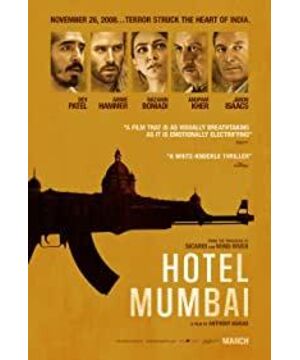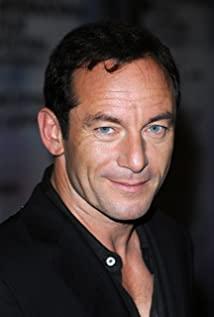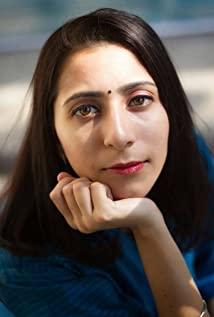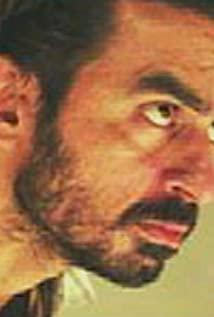How to uncover the newly healed scars of a nation in a suitable way?
Every movie adapted from a real terrorist attack needs to treat this issue with the most rigorous attitude.
The film "Mumbai Hotel" adapted from the 2008 Mumbai serial terrorist attack will be released in Hong Kong soon. Although the film's story comes from India, it is not a Bollywood movie, but a completely Hollywood-style exciting action film filmed by an Australian director and starring Western actors.
As a Hollywood film, the "hardware" part of "Mumbai Hotel", with its unbridled rhythm, creates an outstanding sense of tension, leaving the audience with few breathing opportunities, as if the high-end products coming out of the assembly line are far better than the vast majority. The lonely hero movie of the blockbuster cast.
Correspondingly, perhaps it is a side effect of the tight pace. The film lacks in the "software" level. Faced with racial issues, religious issues, and conflicts between East and West, they all pass by quickly. Therefore, the entire film lacks the same type of film. The practical significance. Therefore, the author believes that as a pure action movie, the film can even score 9 points, but as a terrorist attack movie, due to the lack of practical significance, the film can only get 6 points.
On November 26, 2008, 10 terrorists trained in Kashmir launched a series of attacks on 12 different locations in Mumbai, India, resulting in 195 deaths and 313 injuries.
The Taj Mahal Hotel, a landmark in Mumbai, was also attacked by four terrorists. In the three days that the terrorists occupied the hotel, 6 bombs were detonated, 31 staff and guests were killed, and 450 people were trapped, including celebrities from various countries and European dignitaries.
In 2013, there was an Indian movie that changed from this terrorist attack, but its influence in India and the world was relatively limited.
This Hollywood version of "Mumbai Hotel" has received unanimous praise from all over the world in terms of film technology. Evaluations such as "excitement and no cold" are everywhere. It can be seen that this film is at least one above average. Excellent action movie.
At the same time, it can be seen from some details of the film that the ambition of the main creator is much more than that. The two most important characters in the film have deep meaning in their character settings
Dev Patel, well-known for starring in "Slumdog Millionaire", once again became the representative of "Indians" in the eyes of Western filmmakers, starring in Arjun, a waitress in a restaurant at the Taj Mahal Hotel.
Interestingly, Arjun is not a "typical" Indian. The Sikh to which he belongs is an ethnic minority in India. Because of the widespread use of martial arts, it has become an important source of troops for the Indian army. At the same time, there is still an ethnic separatist force among the Sikhs, which was once a major unstable factor that plagued the national unity of India. Adult Sikh males wear turbans and are often mistaken for Muslims, and they are even attacked by extreme rightists.
Such an identity has made Arjun a natural "marginal person" in the hotel and society, and his subsequent heroic behavior has become more prominent.
Zahra, played by Iranian actress Nazanin Boniadi, is a character very similar to his real experience. Zahra is the daughter of a wealthy Iranian family. She speaks standard British English. As a secularized Muslim, she has already integrated into Western society and married an American architect.
A wealthy Iranian secular Muslim lady living abroad has to remind people of the overseas orphans of the Pahlavi dynasty. After the Islamic Revolution in Iran, the Pahlavi dynasty, which actively promoted secular reforms, was overthrown, and members of the royal family went into exile overseas and are still unable to return to the country. But so far, the Pahlavi dynasty is still the most typical representative of secularization, modernization, and Westernization in the Islamic world.
Marginal figures in the two societies exist as a symbol of "reconciliation" in the film: Arjun is a symbol of minority groups' recognition by the mainstream of society, and Zahra is a symbol of Muslims' peaceful coexistence with the world.
The director also made full use of the hidden identities of the two characters to create two impressive scenes in the film. When hotel staff and guests were hiding in the secret room, Zahra spoke with her mother in her native language, and was accused by an overly frightened white old lady next to her, saying that she was using "terrorist language" and must be a terrorist's accomplice. Arjun wearing a turban was also involved.
Zahra's Muslim identity, 㛑 got a surprise at the end of the film: before the radical Muslim terrorist pulled the trigger at her, she suddenly began to recite the "Quran" aloud. The terrorists were shocked. Although they still called her a "witch," they still let her survive.
It has been 18 years since the 9/11 incident, and movies about this terrorist attack are emerging in endlessly. However, most of the mainstream movies do not directly face the scene of the attack, and somewhat avoid the social reasons behind the terrorist attack.
The earliest "Flight 93", the story basically only takes place in the cabin of the plane, the main characters in the film are all fictional, mainly showing the heroic passengers fighting terrorists, and the process of defeating their conspiracy.
The great director Oliver Stone is known for shooting controversial themes, but his director's "World Trade Center" is a heroic epic about New York firefighters.
Other movies of the same kind mostly tell stories of witnesses healing wounds after the fact. The 9/11 incident actually appeared as the background of the times.
Hollywood operates this way because they know that their natives are not ready to face the freshest scars on their bodies.
For the same reason, the Indian terrorist attack film shot by an Australian director cannot be too stimulating to the spiritual and physical wounds that Indians have just healed.
In fact, just after watching it, I can imagine the director’s difficulties: this is a film that is destined to look real, but not too real.
On the one hand, in reality, what happened at the Taj Mahal Hotel was actually a confrontation between amateur terrorists and amateur police. Four terrorists dared to occupy a huge hotel with 600 rooms, 11 restaurants and 1,600 employees. They were destined to fail to form an effective occupation, and would be easily surrounded and destroyed by the police. However, they happened to run into the same amateur Indian military police. The professional counter-terrorism forces had to come from far away Delhi. The only local policemen who could be sent to the front line were the local police with antique WWII rifles.
However, the film cannot overly express the absurdity of the attack and rescue process, otherwise it will be accused of "Indian black". Therefore, although the problem of the local police is mentioned in the film, it is necessary to arrange two "lone heroes" from the police circle to suppress terrorists with two pistols and provide intelligence to the outside world.
On the other hand, in most terrorist attack movies, the race of the terrorists in the attack cannot be overstated or ignored. Terrorists cannot be inhumane killing machines, nor can they focus too much on the sad stories behind them.
The film also cannot escape restrictions. However, the depiction of terrorists in this film is too sloppy, and the reason for their participation in the attack is simply summarized as "being bewitched by religious extremist forces."
In this way, the attacker has become a tool in the film. Even if the enemy is changed from a terrorist to an alien, a Nazi, a monster, a super villain, there is no essential difference, and the film is no different from a general action thriller. NS.
Not making excuses for terrorist attacks does not mean not exploring the causes behind terrorism. The author believes that whether it is possible to explore the profound reasons behind every terrorist attack through the plot is the most important difference between "good" and "good work" in terrorist attack movies.
After the terrorist attack on mosques in Christchurch, New Zealand, in March this year, the film was postponed in New Zealand for fear of incurring protests from Muslim groups or inciting more hatred against Muslims.
The reality of society is far more complicated than what can be expressed in the film. There are actually scars on the two groups that seem to be opposed. Only by fully exposing the justice and evil in the eyes of both parties is the first step in exchange for reconciliation.
First published in "Orange News"
View more about Hotel Mumbai reviews











